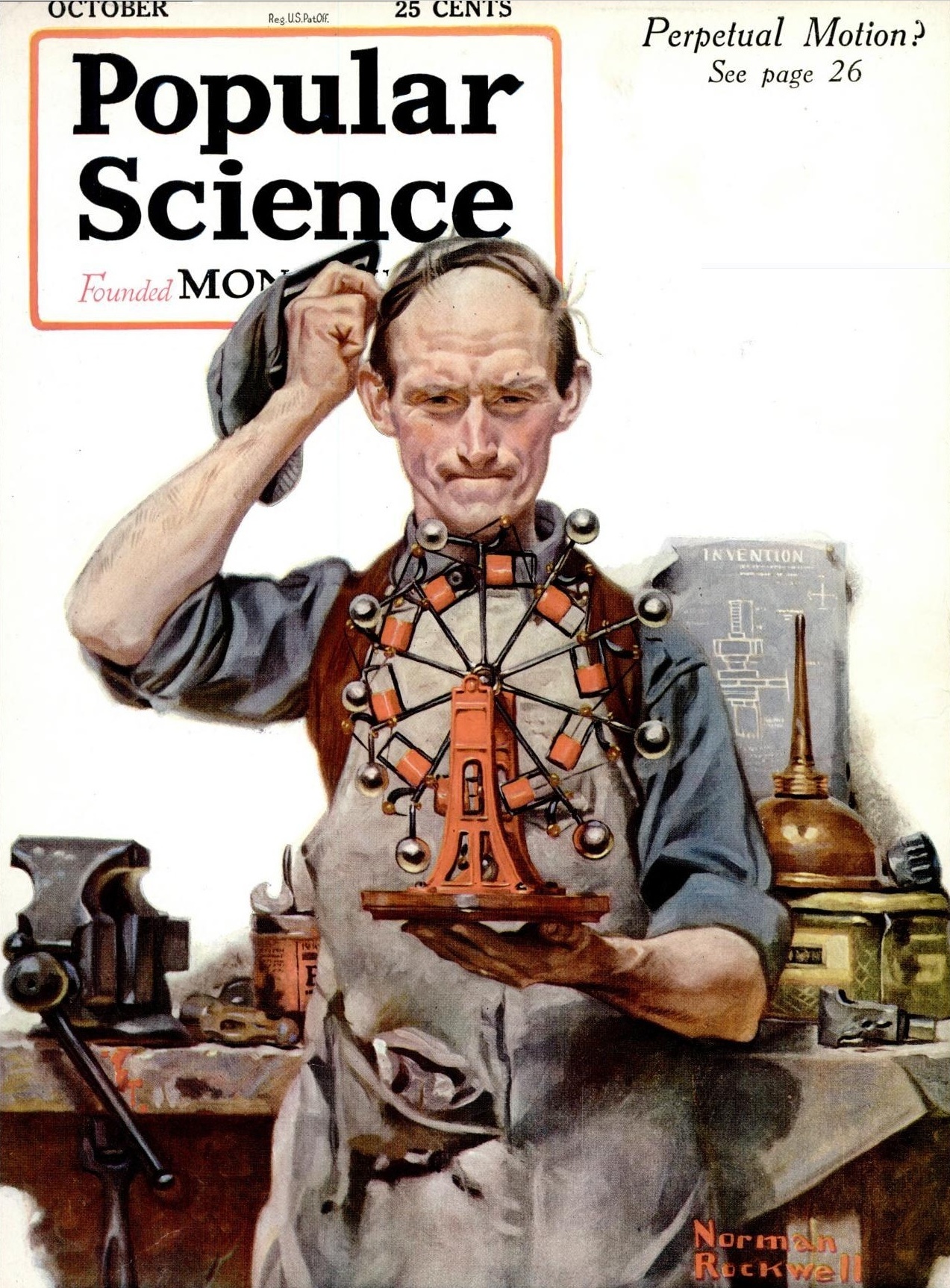From the Heat phenomena
18. Impossibility of creating a perpetual motion machine
Long before the opening of the law on energy conservation, the French Academy of Sciences decided in 1775 not to consider designs of perpetual motion machine, or "perpetuum mobile of the first kind" (in Latin perpetuum mobile is eternally moving). Later, such decisions were taken by leading scientific institutions of other countries.
A perpetual motion machine of the first kind is a device that could perform an unlimited quantity of work without the use of fuel or any other materials. Now we can say without energy consumption.
Projects of this kind of engines were created a huge number. They continue to invent them now. Many of these projects were witty, and it is not immediately possible to say what exactly prevents them from working. But all of them had and have a common property: they do not work forever. This is what has led scientists all over the world to believe that it is not about the imperfection of individual designs, but about a certain general pattern of nature.
The impossibility of creating a perpetual machine is a consequence of the energy conservation law (1-21, \( \Delta U = \Delta W + \Delta Q \)). If no heat \( (\Delta Q = 0) \) is supplied to the system, the work can only be done by reducing the system energy. After the energy reserve is exhausted, the engine will stop working.
Reverse true. The impossibility of creating a perpetual motion (an experimental fact) is the most convincing proof that the law of energy conservation is true.
